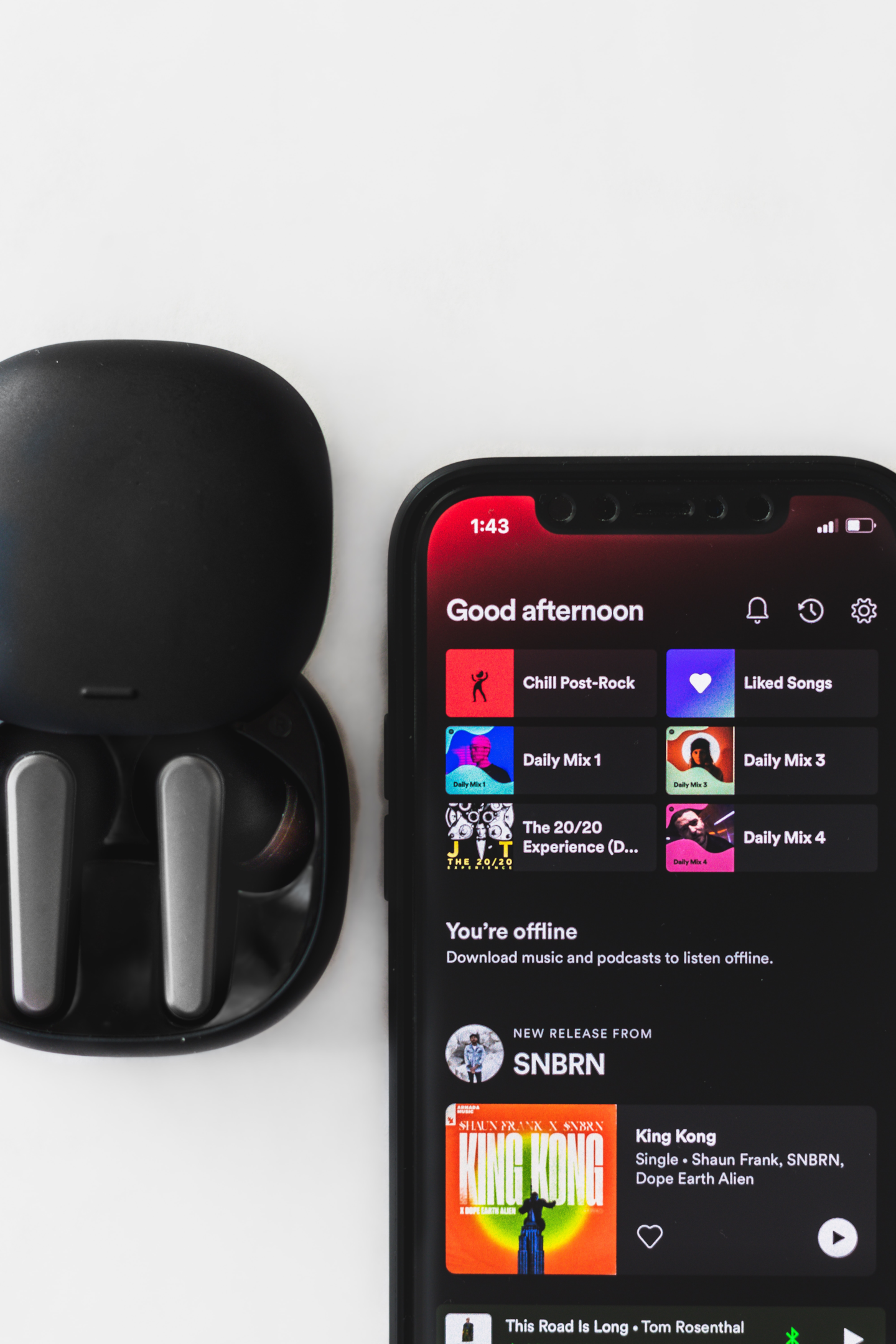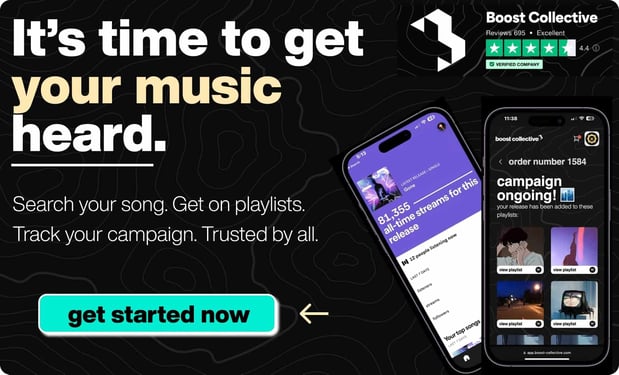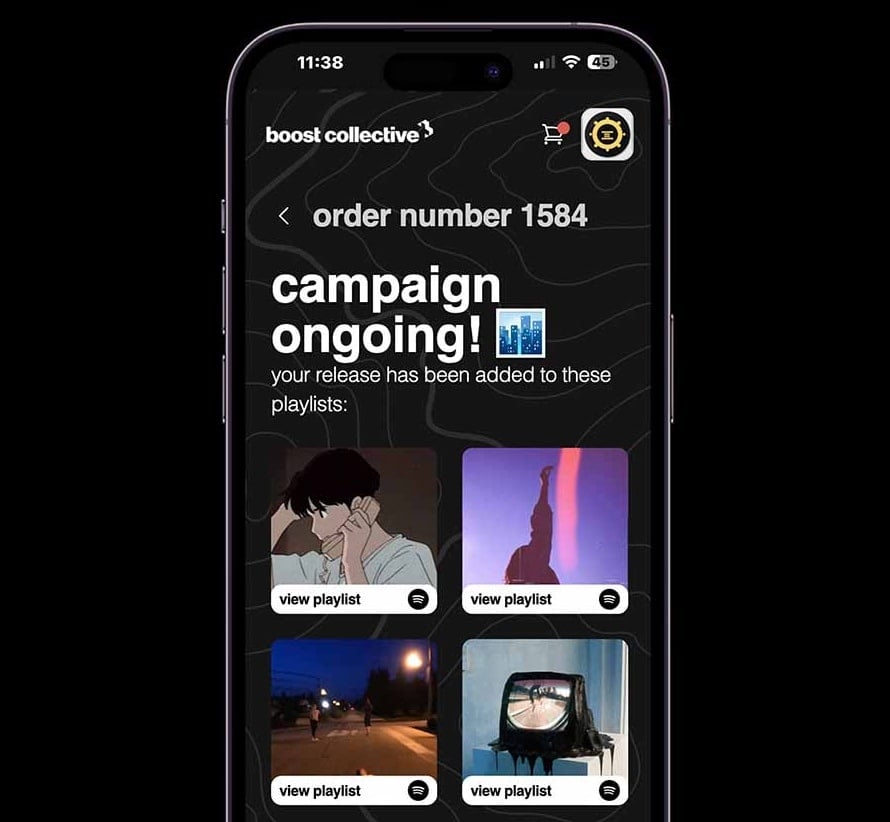Overview
-2.jpg?width=300&height=200&name=cezar-sampaio-IJthre6PHHQ-unsplash_11zon%20(1)-2.jpg)
Have you ever dreamed of your own record label and turning your passion for music into a successful business?
Do you want to know the secrets of running a profitable music venture?
Introduction
The music industry is not only competitive but also complex, and navigating it can be daunting.
However, with the right strategies and mindset, you can turn your music and business ideas into a career that fulfills both your creative and financial goals.
Building a successful music business requires more than just talent and passion. It requires a solid foundation of knowledge, skills, and connections to navigate the industry.
In this feature, we will share essential tips that will help you build and sustain a profitable music venture. Whether you are a musician, producer recording artist, or manager, these tips will help you create a roadmap to success in the music world.
Importance Of A Music Business
The music business plays a crucial role in the music industry by facilitating the creation, recording sessions distribution, and consumption of music.
It encompasses various activities, including artist management, record labels, music publishing, concert promotion, talent agencies, music streaming platforms, and more.
The importance of the whole music licensing business can be understood from several perspectives:
-
Economic Impact: The music business is a significant contributor to the global economy. It generates billions of dollars in revenue each year, creating employment opportunities for artists, songwriters, producers, engineers, marketing professionals, and other industry personnel. It also drives economic growth through related sectors such as live events, merchandise sales, and music tourism.
-
Artistic Development And Promotion: The music business plays a pivotal role in discovering, nurturing, and promoting new talent. Record labels and artist management companies provide crucial resources, guidance, and financial support to artists, enabling them to develop their skills, record albums, and promote their music to a wider audience. This support system is vital for artists to reach their creative potential and establish successful careers.
-
Music Distribution: The music business facilitates the distribution of music to various platforms and channels. Record labels and music distributors negotiate deals with streaming services, radio stations, retail stores, and other outlets to ensure that music reaches consumers. This infrastructure enables artists to share their work with a global audience, making it accessible and discoverable.
-
Royalty Collection And Rights Management: Music business entities, such as music publishers and collection societies, play a crucial role in collecting royalties and ensuring that artists and rights holders are fairly compensated for their work. They manage the licensing and administration of copyrights, track music usage, and distribute royalties to the appropriate parties. This system helps sustain the music ecosystem by providing financial incentives to creators and encouraging further artistic endeavors.
-
Cultural Impact: Music has a profound cultural impact on societies around the world. It reflects and shapes identities, provides a means of expression, and brings people together. The music business plays a pivotal role in amplifying diverse voices, preserving cultural heritage, and fostering creativity. It enables artists from different backgrounds and genres to share their unique perspectives, contributing to a vibrant and inclusive musical landscape.
-
Technological Innovation: The music business has been at the forefront of technological advancements that have transformed the way we consume music. From vinyl records to cassette tapes, CDs, digital downloads, and streaming services, the industry has adapted to evolving formats and platforms. The business continually embraces new technologies, such as AI-driven music recommendation systems and blockchain-based solutions, to enhance the music experience and drive innovation.
In summary, the recorded music business is of paramount importance as it provides essential infrastructure, resources, and support to artists, ensures fair compensation for their work, drives economic growth, and contributes to the cultural fabric of society.
It catalyzes artistic development, music distribution, music publicism, and technological advancements, enabling the music industry to thrive and flourish.
Developing A Strong Foundation

Developing a strong foundation in the music business requires a combination of knowledge, skills, and networking. Here are some essential steps to help you establish yourself in the music industry:
-
Educate Yourself: Gain a deep understanding of the music industry by studying its different aspects. Learn about music theory, composition, songwriting, music production, and the business side of the industry. Take music-related courses, attend workshops, and read books on music business and marketing.
-
Define Your Goals: Determine your specific interests and goals within the music business. Whether you want to be a performer, songwriter, producer, manager, or work in another area, having clear objectives will help you focus your efforts and make strategic decisions.
-
Network: Build a strong network of industry professionals, musicians, and like-minded individuals. Attend music conferences, seminars, and local events to meet people in the industry. Connect with fellow musicians, producers, managers, and anyone who can help you progress in your career. Networking can open doors, provide opportunities, and offer valuable guidance.
-
Collaborate: Collaborating with other musicians and industry professionals can expand your reach and help you develop your skills. Seek out opportunities to collaborate on music projects, whether it's co-writing songs, producing tracks, or performing together. Collaborations introduce you to new audiences and can lead to valuable connections.
-
Create A Brand: Establish a strong personal brand that reflects your unique identity as an artist or professional. This includes creating a professional website, social media presence, and a consistent visual identity. Develop a compelling bio and press kit that highlights your skills and accomplishments.
-
Online Presence: Utilize online platforms and social media to showcase your work and connect with fans and industry professionals. Regularly release music, share behind-the-scenes content, engage with your audience, and leverage digital marketing strategies to increase your visibility.
-
Protect Your Work: Understand the importance of copyright and intellectual property rights in the music industry. Register your original songs with performing rights organizations (PROs), such as ASCAP, BMI, or SESAC, to ensure you receive proper royalties when your music is performed or streamed.
-
Learn The Business Side: Familiarize yourself with music contracts, publishing deals, licensing, royalties, and other legal and financial aspects of the music industry. Consider consulting with an entertainment lawyer or joining music industry organizations to gain further knowledge and protection.
-
Seek Mentors: Look for experienced professionals who can guide and mentor you in your music career. Seek out mentors who have achieved success in your desired field and learn from their experiences and insights.
-
Persistence And Adaptability: The music industry can be challenging and competitive. Stay persistent, believe in your talent, and be adaptable to changes and new opportunities that arise. Keep honing your skills, staying up to date with industry trends, and embracing new technologies.
Remember, building a strong foundation and successful music career takes time and effort. Stay dedicated, keep creating, and remain open to learning and growing as you navigate the music business.
Creating High-Quality Music
Creating high-quality music involves a combination of artistic expression, technical proficiency, and attention to detail. Here are some steps to help you in the process:
-
Develop your musical skills: Start by honing your skills as a musician. Learn to play an instrument proficiently, practice music theory, and study various genres and styles of music. The more you understand about music, the better equipped you'll be to create high-quality compositions.
-
Set clear goals: Determine the type of music you want to create and define your goals. Whether it's pop, classical, electronic, or any other genre, having a clear direction will help you focus your efforts and maintain consistency.
-
Compose with intent: Before you start creating music, have a clear idea or concept in mind. Decide on the mood, theme, or message you want to convey through your music. This will guide your creative decisions and help you achieve a cohesive and impactful result.
-
Emphasize strong melodies and harmonies: Melodies and harmonies are the backbone of most music. Spend time crafting memorable and engaging melodies that evoke emotion and capture the listener's attention. Experiment with different chord progressions and harmonies to create depth and richness in your compositions.
-
Pay attention to arrangement and structure: Structure your music logically and cohesively. Consider the intro, verses, choruses, bridges, and other sections, ensuring they flow seamlessly together. Experiment with dynamics, tempo changes, and variations to keep the listener engaged throughout the song.
-
Focus on sound selection and production: Choose high-quality sounds and instruments that complement your composition. Pay attention to the timbre, dynamics, and spatial placement of each sound. Invest time in learning music production techniques and using digital audio workstations (DAWs) effectively to achieve a professional and polished sound.
-
Capture a good recording: If you're recording live instruments or vocals, ensure you have a good recording setup. Use quality microphones, audio interfaces, and acoustic treatment if necessary. Pay attention to factors like mic positioning, room acoustics, and signal chain to capture clean and accurate recordings.
-
Mix and master your music: Mixing involves blending and balancing individual tracks, adjusting levels, panning, and applying equalization, compression, and other effects to create a cohesive and well-balanced sound. Mastering is the final step where the overall audio is polished, ensuring it translates well across different playback systems. Consider hiring a professional audio engineer if you're not confident in these areas.
-
Pay attention to details: Listen critically to your music and focus on the details. Fine-tune transitions, eliminate any audio artifacts or imperfections and ensure all elements are well-aligned and synchronized. Address issues like timing, pitch, and tonal balance to achieve a high level of polish.
-
Seek feedback and iterate: Don't be afraid to seek feedback from others, whether it's fellow musicians, producers, or your target audience. Embrace constructive criticism and use it to improve your music. Iterate on your compositions, taking into account the feedback you receive, and strive to continuously refine your skills and techniques.
Remember, creating high-quality music takes time, practice, and patience. Keep experimenting, learning, and refining your craft to develop your unique style and sound.
Building An Online Presence

Building an online presence in the music business is crucial for aspiring musicians and bands in today's digital age.
The internet provides numerous opportunities to reach a global audience, connect with fans, and promote your music. Here are some steps to help you build a strong online presence:
-
Create A Professional Website: Start by setting up a dedicated website that showcases your music, provides information about you or your band, and serves as a hub for your online activities. Include an engaging biography, high-quality photos, music samples, upcoming shows or tours, and contact information.
-
Utilize Social Media: Establish profiles on popular social media platforms like Facebook, Instagram, Twitter, YouTube, and SoundCloud. Regularly update your profiles with engaging content, such as music videos, live performances, behind-the-scenes footage, announcements, and interactions with your fans. Use relevant hashtags and engage with your followers to build a loyal fan base.
-
Release Music On Streaming Platforms: Distribute your music on popular streaming platforms like Spotify, Apple Music, and Amazon Music. Consider using a music distribution service to reach a broader audience and maximize your digital presence. Promote your releases through social media, email newsletters, and your website.
-
Engage With Your Fans: Interact with your fans regularly by responding to comments, messages, and mentions on social media. Offer exclusive content or perks to your most dedicated supporters. Consider hosting live Q&A sessions, live streaming performances, or behind-the-scenes sessions to foster a sense of community and connection.
-
Collaborate With Influencers And Other Artists: Seek out collaborations with influencers or other musicians within your genre. This can help you tap into their existing fan base and expand your reach. Collaborative efforts could include joint performances, remixes, or featuring on each other's tracks.
-
Create Engaging Content: In addition to sharing your music, create compelling content that resonates with your target audience. This could include music videos, vlogs, tutorials, cover songs, or interviews. Experiment with different formats and use storytelling techniques to capture your audience's attention.
-
Leverage Email Marketing: Build an email list by encouraging fans to sign up through your website or social media profiles. Send regular newsletters to keep your subscribers informed about new releases, upcoming shows, and exclusive content.
Use email marketing tools to segment your audience and personalize your messages. -
Network With Industry Professionals: Attend industry events, conferences, and local music showcases to connect with industry professionals, fellow musicians, and potential collaborators. Networking can lead to valuable opportunities for exposure, collaborations, and partnerships.
-
Optimize For Search Engines: Ensure that your website and social media profiles are optimized for search engines. Use relevant keywords in your content, meta tags, and descriptions to improve your visibility in search results. This can help potential fans and industry professionals discover your music more easily.
-
Stay Consistent And Authentic: Building an online presence takes time and effort, so stay consistent with your content creation and engagement strategies. Be authentic and genuine in your interactions with fans, as they appreciate artists who connect with them on a personal level.
Remember, building an online presence is an ongoing process.
Continuously assess and adapt your strategies based on your audience's feedback and changing industry trends.
Stay dedicated, focused, and passionate about your career in music, and your online presence will continue to grow over time.
Marketing And Promotion
Marketing and promotion are essential components of success in the music business, and there are many strategies that musicians and industry professionals can use to promote their own music and build their brands effectively. Here are a few key tips:
1. Build a strong online presence: In today’s digital landscape, having a strong online presence is crucial for promoting your music. This includes creating a website, building social media profiles, and leveraging online platforms like YouTube, SoundCloud, and Spotify to reach new fans.
2. Leverage the power of influencers: Partnering with influencers like bloggers, podcasters, and social media personalities can help you reach new audiences and build your brand. Consider offering exclusive content or behind-the-scenes access to these influencers to encourage them to promote your music.
3. Build relationships with industry professionals: Networking with industry professionals like music bloggers, radio DJs, and record label executives can help you get your music in front of new audiences and build your brand. Attend industry events, participate in online forums, and leverage social media to connect with key players in the music industry.
4. Invest in paid advertising: While organic promotion is important, investing in paid advertising can help you reach new audiences and promote your music more effectively. Consider running targeted Facebook ads, Google AdWords campaigns, or YouTube pre-roll ads to promote your music to a wider audience.
Performance And Touring

Performance and touring are essential aspects of the music business that play a significant role in the success and career development of musicians. Let's explore these topics further:
-
Performance: Live performances provide musicians with a platform to showcase their talent, connect with their audience, and create a memorable experience. Here are some key points to consider:
a. Preparing for Performances: Musicians need to rehearse their music thoroughly, ensuring they are well-prepared to deliver an outstanding performance. This includes practicing songs, choreography (if applicable), stage presence, and interacting with the audience.
b. Choosing the Right Venues: Artists should consider the type of venue that suits their music and target audience. Venues can range from small clubs and bars to concert halls, arenas, and festivals. Each setting offers unique opportunities and challenges.
c. Promoting Performances: Effective promotion is crucial to attracting an audience to live shows. Utilize social media, websites, mailing lists, local press, and collaboration with other artists to create awareness and generate excitement for upcoming performances.
d. Engaging the Audience: Interaction with the audience is essential for creating a memorable experience. This can involve addressing the crowd, encouraging participation, and connecting with fans on a personal level.
-
Touring: Touring allows artists to reach new markets, expand their fan base, and build a stronger presence in the industry. Here are some key considerations for touring:
a. Planning and Logistics: Organizing a tour involves careful planning and coordination of various elements, such as booking venues, arranging transportation, securing accommodations, and managing finances. It is important to work with a team or tour manager to handle these logistics effectively.
b. Routing and Scheduling: Creating an efficient tour routing is crucial to optimize travel and minimize costs. Consider factors such as geographical proximity, target audience density, and the availability of venues.
c. Budgeting and Financing: Touring can be expensive, with costs including transportation, accommodation, meals, equipment, crew, promotion, and more. Artists should develop a realistic budget and explore funding options like sponsorships, grants, crowdfunding, or label support.
d. Promotion and Marketing: To maximize the impact of a tour, artists should promote their shows in advance through various channels, including social media, websites, local media outlets, and collaborations with local artists or influencers.
e. On-Tour Experience: Maintaining a positive on-tour experience is crucial for both the artists and their teams. This involves efficient communication, managing relationships, self-care, and addressing unexpected challenges promptly.
f. Expanding Opportunities: Successful tours can open doors to new opportunities, such as securing bigger gigs, attracting label attention, or even international touring. Building relationships with industry professionals and networking during tours can greatly contribute to career growth.
Remember that touring can be physically and mentally demanding. It's important to find a balance between performing, rest, and self-care to maintain a sustainable career in the music industry.
Overall, a combination of captivating performances, effective promotion, and strategic touring can significantly contribute to a musician or musical act's success and help them build a loyal fan base.
Networking And Collaborations
Networking and collaborations are crucial in the music industry as they can help you gain exposure and opportunities. Here are some tips for networking and collaborations in the music business:
1. Attend industry events and connect with people in your field. This can include conferences, music festivals, and networking events.
2. Utilize social media to connect with other musicians, producers booking agents, and industry professionals. Platforms such as LinkedIn, Instagram, and Twitter can be great for building relationships and expanding your network.
3. Collaborate with other musicians or producers to create new music and gain exposure. You can collaborate live music, online or in-person, and this can lead to new fans and opportunities.
4. Don't be afraid to reach out to people and ask for advice or mentorship. Many industry professionals are willing to help aspiring musicians with music careers and offer guidance.
Overall, building relationships and collaborations can help you achieve success in the music industry, so it's important to prioritize networking and building connections.
Financial Management
Financial management is crucial in the music business, as it involves managing revenues, expenses, and investments. Here are some tips for effective financial management in the music industry:
1. Keep accurate financial records. Whether you’re a music artist or a music producer, it’s important to keep a close eye on your finances and to maintain accurate records of your revenue, expenses, and investments.
2. Budget wisely. Create a budget that takes into account your income, expenses, and investments. Make sure to prioritize your expenses and allocate funds to areas where you can generate the biggest return on investment.
3. Invest wisely. Invest in areas that are likely to generate income over the long term, such as music royalties, merchandise sales, and concert ticket sales.
4. Work with financial experts. If you’re not comfortable managing your own finances, consider hiring a financial expert, such as an accountant or a financial advisor, to help you manage your finances effectively.
By following these tips, you can effectively manage your finances in the music business and maximize your potential for success.
Adapting To Industry Changes

Adapting to industry changes in the music business can be challenging, but it’s essential if you want to stay relevant and successful. Here are a few tips to help you adapt:
1. Stay on top of the live music industry, trends, and changes: Keep yourself informed about the latest trends, technologies, and changes in the music industry. This will help you stay ahead of the curve and adapt quickly to new developments.
2. Embrace digital distribution: With the rise of digital distribution platforms like Spotify, Apple Music, and Pandora, it’s essential to make your music available on these platforms. Focus on building a strong online presence, promoting your music on social media, and using digital marketing strategies to reach a wider audience.
3. Collaborate with other artists music producers, and industry professionals: Collaborating with other artists, producers, and industry professionals can help you stay relevant and tap into new audiences. Consider working with other musicians on projects, attending industry events, and building relationships with key players in the industry.
4. Diversify your income streams: In addition to recording studios selling music, consider other ways to make money in the music industry, such as licensing your music for film and TV, selling merchandise, or providing music lessons and coaching services.
By staying informed, embracing digital distribution, collaborating with others, and diversifying your income streams, you can adapt to the changing landscape of the music industry and thrive in the digital age.
The Wrap-Up
Building a successful music business takes time, patience, and perseverance.
By creating a solid business plan, building a strong brand, networking with industry professionals, leveraging social media, and monetizing your music teacher and business, you can turn your passion for music into a profitable and thriving business.
Get your music on playlists now.
It’s time you get your exposure and listeners up - playlisting by Boost Collective has been trusted by 50,000+ artists worldwide.
It’s easy: Search your song, get on playlists, and track your campaign.
What’re you waiting for? Tap in - and get added to playlists in 24 hours.
Join Boost Collective for free here.

